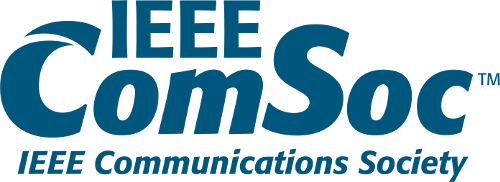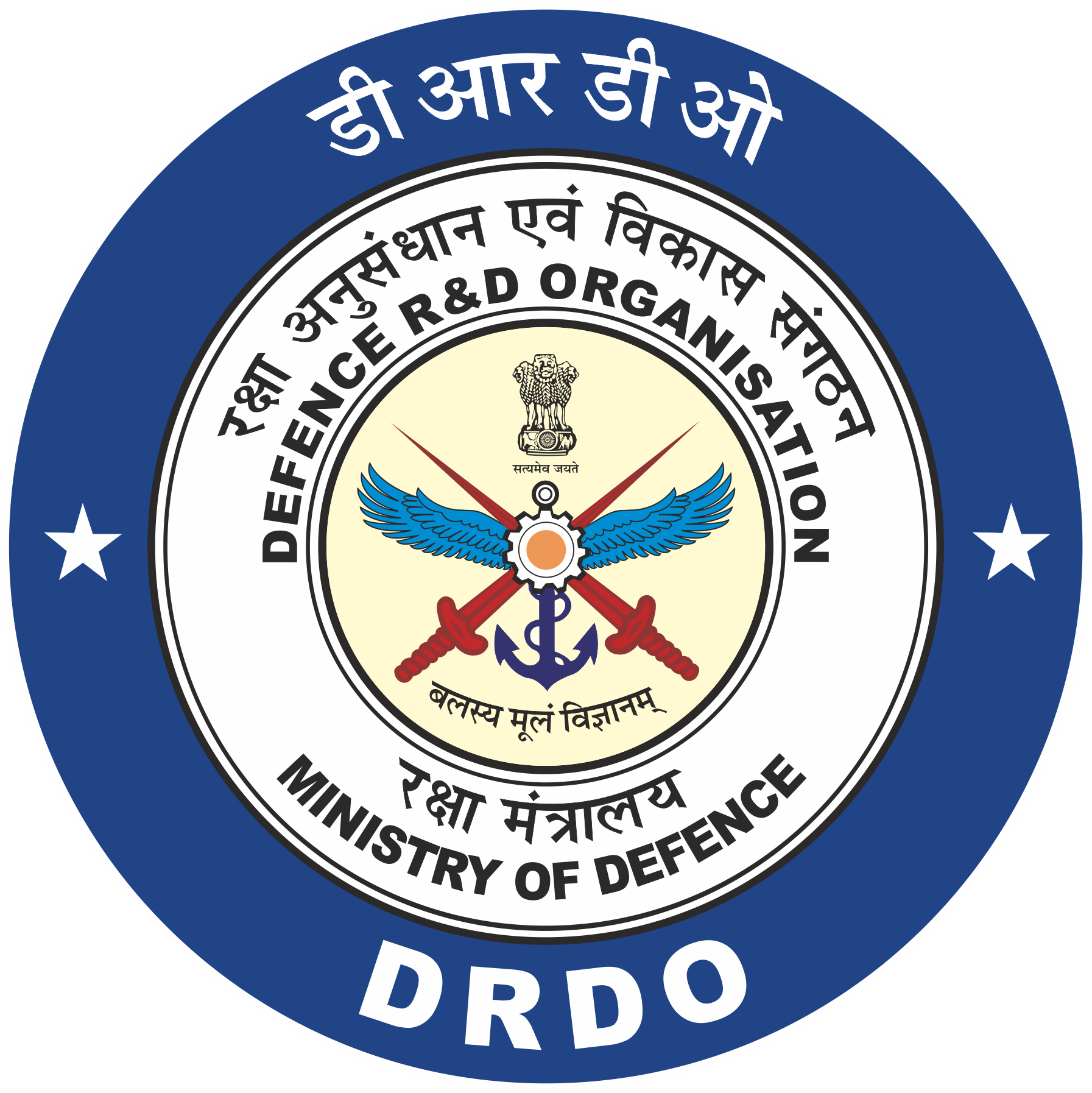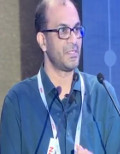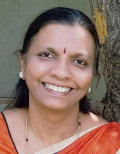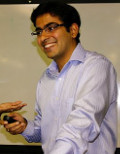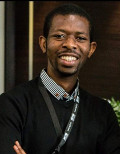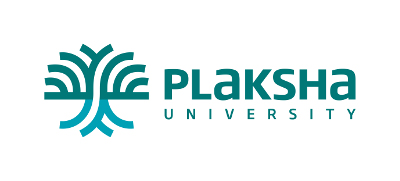Workshop on Machine Intelligence in Networked Data and Systems (MINDS)
All workshops will be conducted in a hybrid mode. However, we strongly encourage physical attendance (including delegates/authors/speakers/chairs and OC members) for the workshops, especially if you are in India. There will be travel grant opportunities for authors traveling from within India.
Schedule
| January 8, 2022 | ||
|---|---|---|
| Venue: Sigma 1 | ||
| Time | Title | Speaker/Authors |
| 9:45 - 9:50 | Opening Remarks | Manjesh and Sirisha |
| Session 1: Performance Studies | ||
| 9:50 - 10:25 | Keynote Talk | Prof. Chiranjeeb Bhattacharya |
| 10:25 - 10:35 | Q&A Keynote | |
| 10.35 - 10.50 | An efficient approach to kNN algorithm for IoT devices | Bhavesh Gawri (Birla Institute of Technology and Science, Pilani, Hyderabad Campus, India); Anirudh Kasturi (Birla Institute of Science & Technology, Pilani, Hyderabad Campus, India); Lalita Bhanu Murthy Neti (Birla Institute of Technology & Science, Pilani- Hyderabad, India); Chittaranjan Hota (Birla Institute of Technology & Science, Pilani, Hyderabad Campus, India) |
| 10.50 - 11.05 | Automating the Selection of Container Orchestrators for Service Deployment | Pravar Chaurasia (National Institute of Technology Karnataka, India); Shubha Brata Nath (Indian Institute of Technology Kharagpur, India); Sourav Kanti Addya (National Institute of Technology Karnataka, India); Soumya Ghosh (Indian Institute of Technology Kharagpur, India) |
| 11.05 - 11.30 | Tea Break 1 | |
| 11:30 - 12:05 | Keynote: | Dr. Geetha Manjunath |
| 12:05 - 12:15 | Q&A Keynote | |
| 12:15 - 12:30 | Communication Efficient Distributed Learning using Variational Auto Encoders | Anirudh Kasturi and A Boodhayana S Vishwamithra (Birla Institute of Science & Technology, Pilani, Hyderabad Campus, India); Chittaranjan Hota (Birla Institute of Technology & Science, Pilani, Hyderabad Campus, India) |
| 12:30-12:45 | DEFER: Distributed Edge Inference for Deep Neural Networks | Arjun Parthasarathy (Crystal Springs Uplands School, USA); Bhaskar Krishnamachari (University of Southern California, USA) |
| 12:45-1:00 | Detection of Fake Users in Twitter Using Network Representation and NLP | Manojit Chakraborty (Robert Bosch Research and Technology Center, India); Shubham Das (Swiggy, India); Radhika Mamidi (International Institute of Information Technology, Hyderabad, India) |
| 13:00 - 14:00 | Lunch Break | |
| 14:00 - 14:45 | Invited Talk | Dr. Charles Onu |
| 14:45 - 15:00 | Evaluating Data-Parallel Distributed Training Strategies | Ganesan Ponnuswami and Sriram Kailasam (Indian Institute of Technology Mandi, India); Dileep Aroor Dinesh (Indian Institute of Technology Mandi (IIT Mandi), India) |
| 15:00 - 15:15 | Explainable Machine Learning Models for Prediction of Smoking Cessation Outcome in New Zealand | Isidro C Medina, Jr. and Mahsa Mohaghegh (Auckland University of Technology, New Zealand) |
| 15:15 - 15:30 | IDS To Detect Worst Parent Selection Attack In RPL-Based IoT Network | Usha Kiran (Indian Institute of Technology Bhilai, India) |
| 15:30 - 16:00 | Tea Break 2 | |
| 16:00 - 16:45 | Invited Talk | Prof. Nikhil Karamchandani |
| 16:45 - 17:00 | Measuring Human Auditory Attention with EEG | Chirag Ahuja (Delhi Technological University, India & Oracle Corportation, India) |
| 17:00 - 17:15 | Multi-Model Federated Learning | Neelkamal Bhuyan and Sharayu Moharir (Indian Institute of Technology Bombay, India) |
| 17:15 - 17:30 | Optimal Lockdown to Manage an Epidemic | Jagtap Kalyani Devendra and Kundan Kandhway (Indian Institute of Science Education and Research Bhopal, India) |
| 17:30 - 17:45 | Short Term Effect Of Physical Exercise On Selective Attention Using EEG and Stroop Task | Taksh Kamlesh, Divyashikha Sethia and Mrigank Singh (Delhi Technological University, India) |
| 17:45 - 18:00 | Concluding Remarks and Best Paper Award | |
Keynote Speakers
Chiranjib Bhattacharyya
Indian Institute of Science, Bangalore, India.Visit Homepage
Harnessing the transformational power of Artificial Intelliegnce(AI) for betterment of society is now a well recognized global goal. Achieving this goal will crucially depend on developing efficient algorithms which can aid in learning models from diverse and large collections of data. In this talk we will present two applications: Diagnosing Xray images, now launched all over India as X-raySetu, and Social Robotics to aid Special Educators.
Chiranjib Bhattacharyya is currently Professor and the chair of the Department of Computer Science and Automation, Indian Institute of Science. His research interests are in foundations of Machine Learning, Optimisation and their applications to Industrial problems. He has authored numerous papers in leading journals and conferences in Machine Learning. Some of his results have won best paper awards. He joined the Department of CSA, IISc, in 2002 as an Assistant Professor. Prior to joining the Department he was a postdoctoral fellow at UC Berkeley. He holds BE and ME degrees, both in Electrical Engineering, from Jadavpur University and the Indian Institute of Science, respectively, and completed his PhD from the Department of Computer Science and Automation, Indian Institute of Science. He is also a fellow of Indian Academy of Engineering.
Geetha Manjunath
Founder, CEO and CTO of NIRAMAI Health AnalytixVisit Homepage
Dr. Geetha Manjunath is the Founder, CEO and CTO of NIRAMAI Health Analytix, and has led the company to develop a breakthrough AI solution for detecting early stage breast cancer in a non-invasive radiation-free manner. Geetha holds a PhD from IISc and management education from Kellogg’s Chicago. She comes with over 25 years of experience in IT innovation. She has proposed and led multiple AI projects at Xerox Research and Hewlett Packard India. Before starting NIRAMAI, Geetha was a Lab Director for Data Analytics Research at Xerox India. Geetha has received many international and national recognition for her innovations and entrepreneurial work, including CSI Gold Medal, BIRAC WinER Award 2018 and is also on the Forbes List of Top 20 Self-Made Women 2020. She was recently awarded the Accenture Vahini Innovator of the Year Award from Economic Times and Women Entrepreneur of the Year 2020 by BioSpectrum India. Geetha is also an inventor of 16 US patents and more pending grant.
Invited Speakers
Nikhil Karamchandani
IIT Bombay, IndiaVisit Homepage
We consider a population, partitioned into a set of communities, and study the problem of identifying the largest community within the population via sequential, random sampling of individuals. There are multiple sampling domains, referred to as boxes, which also partition the population. Each box may consist of individuals of different communities, and each community may in turn be spread across multiple boxes. The learning agent can, at any time, sample (with replacement) a random individual from any chosen box; when this is done, the agent learns the community the sampled individual belongs to, and also whether or not this individual has been sampled before. The goal of the agent is to minimize the probability of mis-identifying the largest community in a fixed budget setting, by optimizing both the sampling strategy as well as the decision rule. We propose and analyse novel algorithms for this problem, and also establish information theoretic lower bounds on the probability of error under any algorithm. In several cases of interest, the exponential decay rates of the probability of error under our algorithms are shown to be optimal up to constant factors.
Nikhil Karamchandani (Senior Member, IEEE) received the M.S. degree from the Department of Electrical and Computer Engineering from the University of California at San Diego in 2007 and the Ph.D. degree from the Department of Electrical and Computer Engineering, University of California at San Diego, in 2011. From 2011 to 2014, he was a postdoctoral scholar with the University of California at Los Angeles and the Information Theory and Applications (ITA) Center, University of California at San Diego. He is currently an Associate Professor with the Department of Electrical Engineering, IIT Bombay. His research interests include networks, information theory, and online learning. He received the California Institute for Telecommunications and Information Technology (CalIT2) Fellowship in 2005, the INSPIRE Faculty Fellowship in 2015, and the Best Paper Award at COMSNETS 2017.
Charles Onu
Founder and AI Research Lead (Ubenwa Health) and Ph.D. Candidate (McGill University & Mila -Québec AI Institute), CanadaVisit Homepage
My research is inspired by the goal of developing accurate and robust algorithms for the analysis of infant cry sounds to detect pathologies in the real world. I will discuss our work in learning in the small data setting, model compression and task-invariant representations of cry sounds. I will also describe our ongoing effort, in collaboration with clinicians across 3 countries to collect a large database of newborn cry sounds that are fully-annotated with clinical indications. Such a database will facilitate the development and validation of effective models for early detection of pathologies in newborns.
Charles is the founder of Ubenwa Health and a Vanier PhD Scholar at Mila & McGill University. He is interested in the design and development of improved diagnostic and decision-making tools in healthcare. At Ubenwa, his work is focussed on developing novel sound-based ML software for early detection of medical conditions in infants. Prior to that, Charles had several years of experience developing solutions to other real-world health care problems such as breast cancer patient care and neonatal intensive care unit (NICU) monitoring. He holds a master's degree in computer science from McGill and a bachelor's degree in Electronics and Computer Engineering from Nigeria. In January 2016, Charles was awarded Associate Fellow of the Royal Commonwealth Society (RCS), an acknowledgement of persons working to improve the lives and prospects of citizens of the commonwealth. He is also a Jeanne Sauvé Fellow.
Accepted Papers
- Measuring Human Auditory Attention with EEG
Chirag Ahuja (Delhi Technological University, India & Oracle Corportation, India) - An efficient approach to kNN algorithm for IoT devices
Bhavesh Gawri (Birla Institute of Technology and Science, Pilani, Hyderabad Campus, India); Anirudh Kasturi (Birla Institute of Science & Technology, Pilani, Hyderabad Campus, India); Lalita Bhanu Murthy Neti (Birla Institute of Technology & Science, Pilani- Hyderabad, India); Chittaranjan Hota (Birla Institute of Technology & Science, Pilani, Hyderabad Campus, India) - Explainable Machine Learning Models for Prediction of Smoking Cessation Outcome in New Zealand
Isidro C Medina, Jr. and Mahsa Mohaghegh (Auckland University of Technology, New Zealand) - Optimal Lockdown to Manage an Epidemic
Jagtap Devendra and Kundan Kandhway (Indian Institute of Science Education and Research Bhopal, India) - Automating the Selection of Container Orchestrators for Service Deployment
Pravar Chaurasia (National Institute of Technology Karnataka, India); Shubha Brata Nath (Indian Institute of Technology Kharagpur, India); Sourav Kanti Addya (National Institute of Technology Karnataka, India); Soumya Ghosh (Indian Institute of Technology Kharagpur, India) - DEFER: Distributed Edge Inference for Deep Neural Networks
Arjun Parthasarathy (Crystal Springs Uplands School, USA); Bhaskar Krishnamachari (University of Southern California, USA) - Multi-Model Federated Learning
Neelkamal Bhuyan and Sharayu Moharir (Indian Institute of Technology Bombay, India) - IDS To Detect Worst Parent Selection Attack In RPL-Based IoT Network
Usha Kiran (Indian Institute of Technology Bhilai, India) - Evaluating Data-Parallel Distributed Training Strategies
Ganesan Ponnuswami and Sriram Kailasam (Indian Institute of Technology Mandi, India); Dileep Aroor Dinesh (Indian Institute of Technology Mandi (IIT Mandi), India) - Short Term Effect Of Physical Exercise On Selective Attention Using EEG and Stroop Task
Taksh Kamlesh, Mrigank Singh and Divyashikha Sethia (Delhi Technological University, India) - Detection of Fake Users in Twitter Using Network Representation and NLP
Manojit Chakraborty (Robert Bosch Research and Technology Center, India); Shubham Das (Swiggy, India); Radhika Mamidi (International Institute of Information Technology, Hyderabad, India) - Communication Efficient Distributed Learning using Variational Auto Encoders
Anirudh Kasturi and A Boodhayana S Vishwamithra (Birla Institute of Science & Technology, Pilani, Hyderabad Campus, India); Chittaranjan Hota (Birla Institute of Technology & Science, Pilani, Hyderabad Campus, India)
As connectivity and storage are getting cheaper, we are seeing more opportunities for Networking Data and Systems. The adaptation of machine learning, artificial intelligence, and data analytics techniques in these networked systems is set to transform and disrupt many areas of business and everyday human life. MINDS (Machine Intelligence in Networked Data and Systems) aims to bring together researchers and practitioners to understand and explain this inter-working.
MINDS welcomes original research submissions that define challenges, report experiences, or discuss progress toward design and solutions that integrate machine learning, artificial intelligence, data analytics, deep learning, mobile systems, and networked systems in various application areas. These application areas include healthcare, environment, retail, transportation, life sciences, e-commerce, cloud services, etc. Contributions describing techniques applied to real-world problems and interdisciplinary research involving novel networking architectures, system designs, IoT systems, big data systems that use techniques from machine learning, artificial intelligence, deep learning, and data analytics as the core component are especially encouraged.
The topics of interest include but are not limited to:
Applications
- Design and implementation of intelligent systems for applications such as home automation, self-driving vehicles, driver assistance systems, supply chain, and logistics
- Cloud based machine and deep learning applications in retail and e-commerce
- Machine learning systems for healthcare, weather modelling, life sciences, and environment monitoring
- Machine learning in management of pandemics (e.g. Covid-19, Ebola, SARS)
- Detection of fake news and control of spread of misinformation
Internet of Things (IoT)
- Machine learning driven systems using mobile phones, embedded devices, and sensor networks
- Applications of machine learning in IoT, IIoT, manufacturing, and supply chain optimisation
- Experiences in managing wearable devices, smart-home systems and mobile sensor networks
- Federated Learning and Distributed Learning for distributed computation and decision making
- Learning with Noisy Labels and Adversarial Robustness
Networking
- Root cause analysis and failure prediction using system and network logs
- Applications of machine/deep/reinforcement learning in satellite networks, cellular networks and WiFi networks
- Machine learning driven algorithms and tools for network anomaly detection. Privacy and and network security
- Machine learning and data mining of large-scale network measurements
- Stream-based machine learning for networked data
- Machine learning driven algorithms for network scheduling and control
- Challenges and solutions in IoT data and stream processing at the edge and in the cloud
- High dimensional big data (images, videos) analysis using machine/deep learning
- Scalability, privacy, and security of networked learning architectures
- Distributed privacy-preserving algorithms, privacy attacks, and federated learning
Social Media Networks
- Machine learning driven analysis of text, image, and video data on social media
- Security, privacy, trust analysis, health analytics in social media and digital networks
- Information diffusion modeling and inference, fake news detection, and knowledge transfer in social media and digital networks,
- Anomaly and outlier detection in social networks
- Computational models and agent-based simulations of social networks
- Reinforcement learning, Inverse reinforcement learning, and other learning-based interventions for tackling misinformation spread.
- Learning-based approaches to analyze COVID-related issues on social media.
Submission Guidelines
- MINDS invites submission of original work not previously published, or under review at another conference or journal.
- Submissions (including title, author list, abstract, all figures, tables, and references) must be no greater than 5 pages in length.
- Reviews will be single-blind: authors name and affiliation should be included in the submission.
- Submissions must follow the formatting guidelines as given on IEEE Website; and those that do not meet the size and formatting requirements will not be reviewed.
- All papers must be in Adobe Portable Document Format (PDF) and submitted through the MINDS Workshop submission site on EDAS.
- All workshop papers will appear in conference proceedings and submitted to IEEE Xplore as well as other Abstracting and Indexing (A&I) databases.
Paper Submission Link: https://edas.info/N28672.
Important Deadlines
| Camera-ready Submission | 15th December 2021 |
| Workshop Date | 8th January 2022 |
Program Committee:
- Tejas Bodas, TCS Research, India
- Sumit Darak, IIIT-Delhi, India
- Yezekael Hayel, LIA, University of Avignon, France
- Swayambhoo Jain, Microsoft, USA
- Nikhil Karamchandani, IIT Bombay, India
- Vinayak Naik, BITS Pilani, Goa
- Jayakrishnan Nair, IIT Bombay, India
- Supraja Perumal, SRM Institute of Science and Technology, India
- Mithileysh Sathiyanarayanan, MIT Square, UK
- Chandramani Singh, Indian Institute of Science, India
- Jaya Sreevalsan-Nair, IIIT Bangalore, India
- Quresh Sutarwala, Nuro, USA
- Naveen Kumar Thokala, TCS Research, India
- Ambuj Varshney, University of California, Berkeley, USA
Workshop Co-Chairs

Manjesh Hanawal
IIT Bombay, India
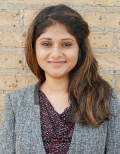
Sirisha Rambhatla
University of Waterloo, Canada




